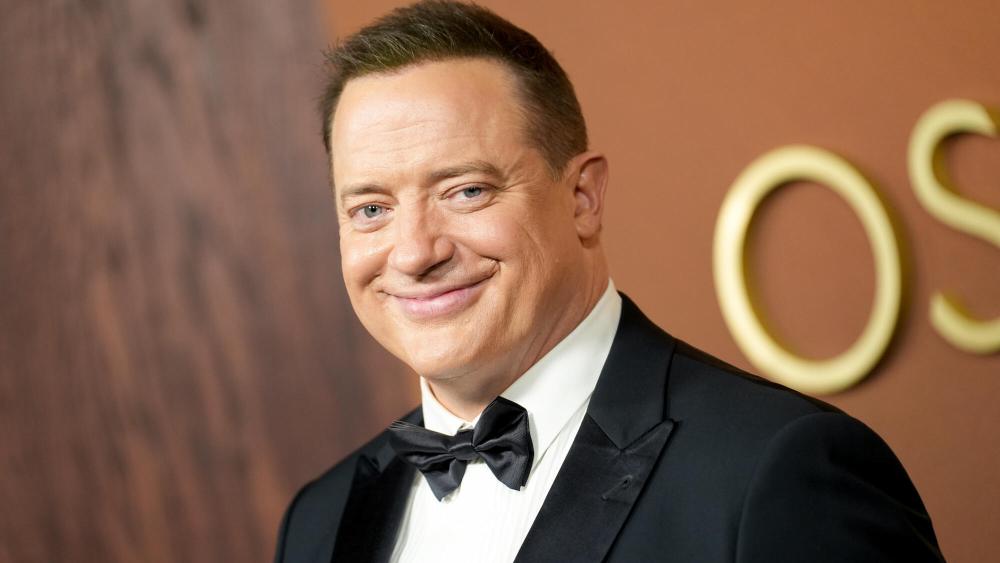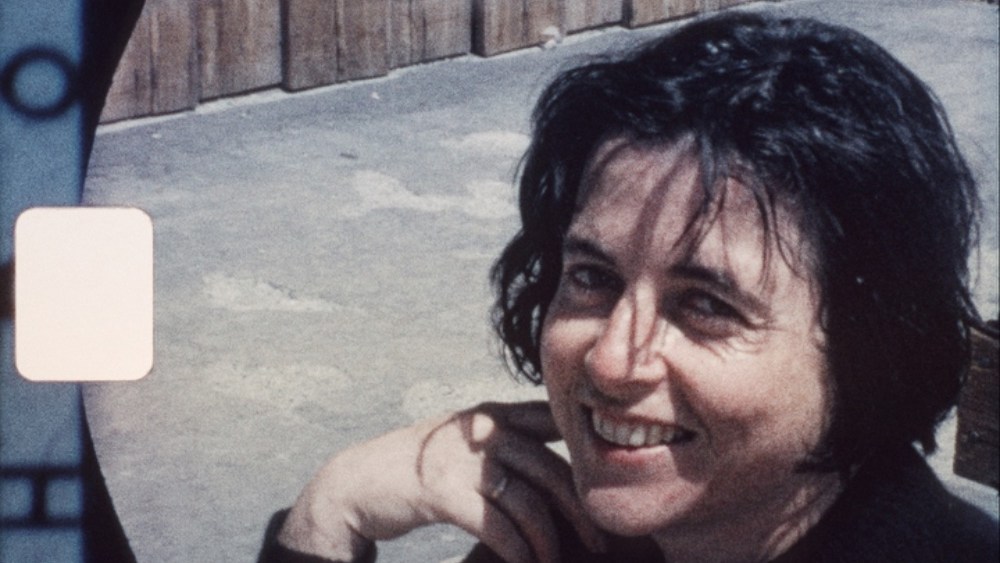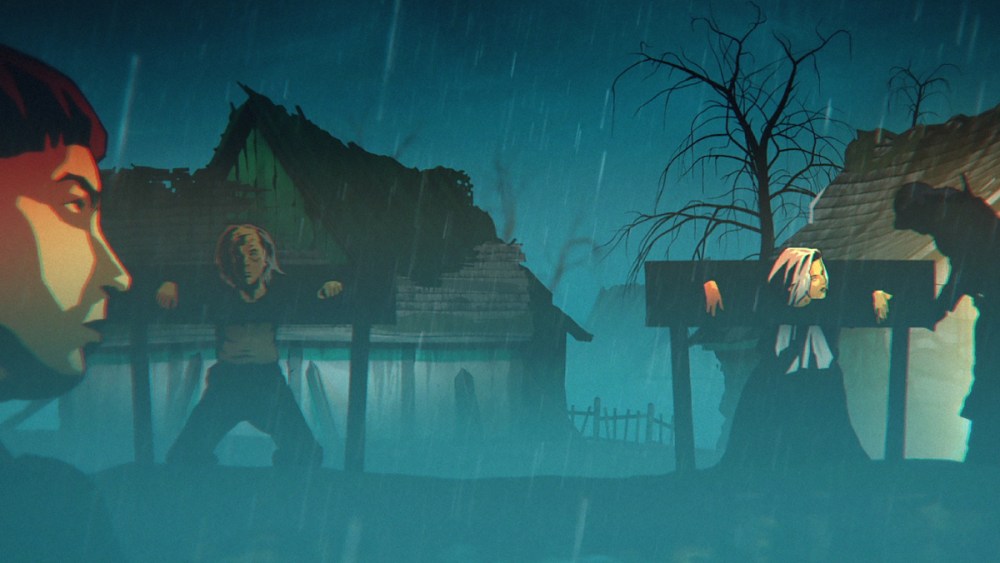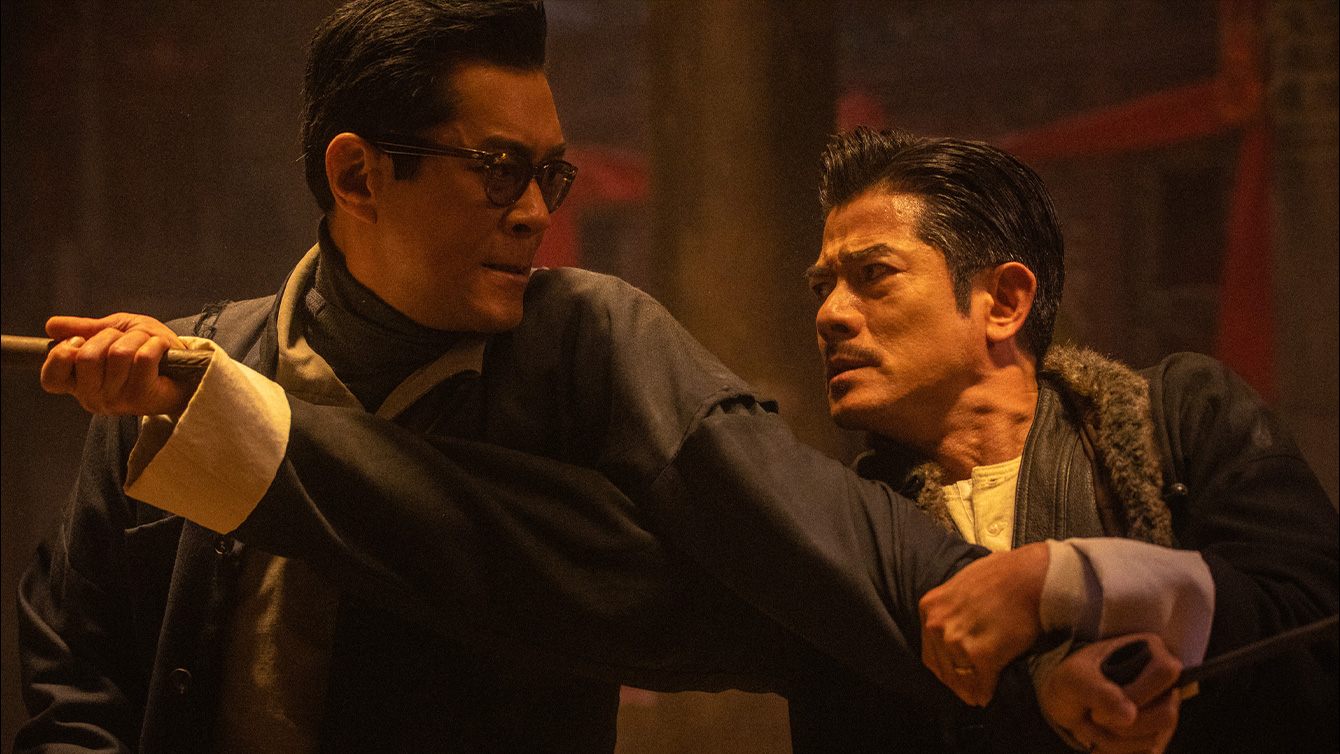Brendan Fraser Gives Warnings on AI and Talks ‘Rental Family’
Three years after his triumphant Oscar win for “The Whale,” Brendan Fraser has found his next deeply personal project in an unlikely place: Tokyo.
In Hikari’s “Rental Family,” Fraser plays Philip, an American actor adrift in Japan who discovers unexpected purpose — and genuine human connection — when he’s hired to play a surrogate family member for people struggling with loneliness.
The film arrives at a moment when its themes feel particularly urgent. “This film really doesn’t have a declared villain,” Fraser says on the Variety Awards Circuit Podcast, settling into a conversation about the project that took him back overseas. “I mean, there are obstacles, of course, but they’re really our social, personal constructs.”
For Fraser, the appeal was immediate and multifaceted. “Automatically, selfishly, I thought, dream job,” he admits with characteristic self-awareness. “Going overseas. Location is vacant till you get there and like, oh, wow, I gotta do some work here. Learn enough Japanese to have passable dialogue. Going to have to run around Tokyo and it’s a busy, busy place.” But beyond the logistical challenges was something deeper — a script that treated its unusual premise with intelligence and emotional honesty.
The premise itself is rooted in reality. Three hundred rental family agencies are operating in Tokyo, a business that has existed since the 1980s. In a society grappling with the “actual public health issues” Fraser describes around solitude and loneliness, these agencies serve a specific need. “Sometimes people just want you to look them in the eyes and to let them know that you know that they exist, and that’s enough,” Fraser says. “But this film does go further than that and asks, what happens after that, when make-believe falls away and feelings and attachments become authentic, what is the result?”
RENTAL FAMILY, Brendan Fraser, 2025. © Searchlight Pictures / Courtesy Everett Collection
©Searchlight Pictures/Courtesy Everett Collection
Fraser’s collaboration with director Hikari began with what he describes as an hours-long lunch that turned into an exploration of art and shared sensibilities. “I think pretty much we were talking about most anything but the film in an affected way,” he recalls. “I know we were finding a kinship with one another in the things that interested us in our approach to the work.” The director, whose name means “light, fire, energy,” brought personal investment to the material, having experienced events in her own life that connected to the story’s themes.
Playing Philip allowed Fraser to explore his own relationship with loneliness, a universal experience that takes on particular dimensions in the public eye. When asked about his own encounters with isolation, Fraser is thoughtfully candid: “I try to chase it away. I try to keep myself busy. Or sometimes I’ll accept it and sit in it. And it’s possible to feel alone, although you are not. You don’t want to intrude on anyone’s personal life. But I think you can identify with — even having company doesn’t give you a sense of feeling less lonely.”
Yet there’s hope in his perspective, a recognition of what truly sustains us. “Secretly, when I do sit down for a cup of coffee with a friend I haven’t seen in a while, I’m kind of doing that,” he says about the rental family concept. “There’s a reason why we call your brother, and it refuels you. It really does. It really does give you something that you can’t buy or ingest or wear or any of that.”
As Fraser continues this remarkable second act of his career, he’s balancing intimate character studies with blockbuster possibilities. The World War II drama “Pressure” is awaiting release, and, perhaps most exciting for fans, a potential return to the “The Mummy” franchise looms on the horizon. “I am very hopeful that this comes to fruition,” Fraser says carefully, acknowledging the speculation that’s been swirling. “It’s what they want. It’s what they’ve been begging for, from me. And I’ve been peppered with the question: “Will there be another?” Hey, look, if the stars align in the right way, I hope I have happy news for you.”
When asked about other franchise opportunities — specifically the upcoming “Legend of Zelda” film adaptation — Fraser’s enthusiasm is palpable. A devoted gamer who admits to distracting himself with his Nintendo DS playing as Link in Hyrule, he’s unequivocal: yes, if there was a part for him, but he doesn’t think there is. It’s this combination of childlike wonder and hard-earned wisdom that makes Fraser such a compelling figure in Hollywood’s current landscape.
On this episode of the Variety Awards Circuit Podcast, Fraser discusses his role in Hikari’s moving dramedy. In addition, he teases where he thinks his “The Mummy” character would be today and how much he loves “The Legend of Zelda” (and the changes he wants to make to the video game). Listen below!

RENTAL FAMILY, from left: Brendan Fraser, Shannon Gorman, 2025. © Searchlight Pictures / Courtesy Everett Collection
©Searchlight Pictures/Courtesy Everett Collection
Read excerpts from her interview below, which has been edited and condensed for clarity.
The film centers on a rental family agency, a real business in Tokyo. How did you first react to this premise?
Well, you can rent just about anything in Tokyo. You can rent a hedgehog. I’ve done it. Why not be able to rent a family? Tokyo is so busy as it is; there is a real need for connection, because a lot of people find themselves wrapped up in company and also feeling like they have not had fulfillment from their own family members, so they rent them, if only for an hour or two or three, someone to sit quietly with them or to attend an event. You can even have someone stand in at a wedding or hire the so-called extras at a funeral if you need to, just to let people know that they’re seen and they’re heard, and that has real value. And I know there are some ethical and moral issues surrounding the whole thing. And that’s the point: when you make believe about reality, what do you get? And so that’s the sort of blurry area in between that Hikari directs this story.
What drew you to this project specifically?
I did need to look for something that would follow up on the events of the Oscar, and I put aside whatever the expectations or pressures would have been placed on me, and really wanted to do whatever it took to keep myself interested. And when I heard about this project, “Rental Family,” it seemed unusual, maybe something that would have been on the blacklist. You know, liked, but not loved. To read it and to see that it was unsentimental, it was not mawkish, it took a very focused look at what it means to have found family and that, yes, it shot in Tokyo — those ticked the right boxes for me. I absolutely adored my first meeting with Hikari. I think we sat down for lunch that turned into — no joke — we went up in the library of this hotel in the city, looking at art books, and I think pretty much we were talking about most anything but the film in an affected way. I know we found a kinship in the things that interested us and in our approach to the work. And above all that, she is her namesake: Hikari means light, fire, energy. She is that.
The film explores loneliness as a central theme. How does Brendan Fraser experience loneliness?
It feels like — sometimes it feels like solitude, which, as Akira Emoto, the actor in our film, did point out, isn’t necessarily a negative thing. I mean, it allows you to have contemplation and reflection, which can be very helpful. But at the same time, in the absence of connection, it can be damaging. What do I do? Sure, I have activities and things that I do. I can grind my gears along with it. I can distract myself with my Nintendo DS and play as Link, flying around Hyrule.
I try to chase it away. I try to keep myself busy. Or sometimes I’ll accept it and sit in it. And it’s possible to feel alone, although you are not. You don’t want to intrude on anyone’s personal life. But I think you can identify with — even having company doesn’t give you a sense of feeling less lonely. But I don’t know if I would ever go so far as to hire a surrogate, normally, that is. But I do know that secretly, when I do sit down for a cup of coffee with a friend I haven’t seen in a while, I’m doing that. There’s a reason why we call your brother, and it refuels you. It really does. It really does give you something you can’t buy, ingest, wear, or any of that.
With SAG contract negotiations coming up and your “Encino Man” co-star Sean Astin now president of SAG-AFTRA, what are your thoughts on AI and the future of acting?
It strikes me as a form of plagiarism, and that’s not good. I mean, yeah, sure, steal from the best, as the phrase goes, but appropriating it without permission and manipulating one’s image, voice or likeness to behave — you’re a puppet on a string. In the long term, the objective is to enrich oneself. That’s not fair without asking permission, as it were. Not acknowledging that that is an issue won’t make it go away. I’m not clever enough to understand what guardrails should be put in place, so to speak. But I do believe that the conversation needs to take place and a lot faster than the development of that technology, because that seems to redo itself every time we blink.
I was honestly wondering about this: 25, 26 years ago, when I would go into the valley somewhere and put on a leotard and get scanned, as you would for special effects in films or the development of plastic dolls, or whatever. And after asking questions like, “Who owns this data?” I never got answers. And I thought, well, I guess it’s stuck in a silo somewhere. And it made me wonder then, not being able to imagine where we are now: what if Marilyn Monroe had been scanned? Pick any luminary — movie star, politician, whatever — would they be all right with this? Would they accept this? Do you really have permission to do this just because you take ownership of someone’s work, because you want to? I don’t know. I really am conflicted about that. I won’t stand in the way of progress, but I have to find out if there’s a happy medium.
What does that happy medium look like?
For instance, around 2008, that’s pretty much when everything went from analog to digital. That’s the real turn of the tide that I recall. “Journey to the Center of the Earth” was a film I shot in Montreal in 2007. First take, first day, we finished. Some rocks were caving in, and we got the shot, and the first AD said, “Okay, let’s move on.” And the first AC, through muscle memory, I guess, put a flashlight in his teeth and reached over to the camera to check the gate. And he stopped himself and turned and looked at everyone with wide eyes. And we all had this same-time epiphany: there is no gate. There’s no reason to have a gate. There’s no magazine or film on top of it. So it was funny, but also, we’re like, “Oh shit, we’ve just gone from horse and cart to internal combustion engine.”
It was an indicator of how things were changing. I mean, not only was that film conceived to be shot in 3D with the technology at the time, but it did usher in a period of change, and the ramifications of that affect the very human aspect of what it takes to create a project or film. So what I want to know is: where’s the gate?
Can you talk about Sean Astin’s leadership at SAG-AFTRA?
Sean Astin is an excellent communicator. I’ve seen him plenty of times over the years at fan conventions around the country. He’s a favorite. There’s always a long line waiting to meet him at his table, and it takes a long time, and he does. He looks everyone in the eye, he gives them their time, and he counsels them. And many people do feel that he is the guy who will drag you up a hill, whether you think it’s good for you or not. He will not let you fail. And that’s just who Sean is.
You have another film coming, “Pressure” from Focus Features, about the D-Day invasion. Can you tell us about it?
Anthony Maras directed it. Andrew Scott is in it — I saw him in “Vanya.” Oh my God, over two hours on the stage, he played about 37 characters, and it was incredible. His character is that of a scientist, a meteorologist, and a biologist, a Scotsman named James Stagg, who advised the Joint Chiefs of Staff on the weekend before the invasion of Normandy Beach on Tuesday, June 6, 1944. The whole operation, Operation Overlord, was scheduled for Monday, June 5. It is said to have been delayed by bad weather. Imagine if they had gone on Monday in bad weather. It would have been an absolute disaster, and the face of history would have been changed.
And it all came down to one sort of nerdy man saying, if you go now, these storms will not allow the men to land on the beach. Waves will be 12 feet. There will be cloud cover. The Air Force can’t identify targets. They will die. In those days, predicting the weather was kind of just looking out the window and looking at analog reports from years prior. If it wasn’t raining in 1928, it won’t rain on this very same day. The scientist, the meteorologist, said, “No, give me the data. That’s what we want to rely on as the answer.” So Eisenhower had to decide whom to listen to. And years later, when Walter Cronkite interviewed him returning to the beach of Normandy and asked about that, he said, “Well, they just happen to have better weathermen than the Germans.”
For whatever I just told you about my thoughts on AI, there is a practical application that is incredibly useful. The archival footage that was upscaled from what was in the Library of Congress — you may be really familiar with those types of images, but you can actually see the breath come from their mouths with the sound mixing. You can see the scatter of sand. This was footage that was taken in 1944, and it looks like it was shot the day before yesterday.
There’s been news about you potentially returning to “The Mummy” franchise. What can you share?
I am very hopeful that this comes to fruition. It’s what they want. It’s what they’ve been begging for, from me. And I’ve been peppered with the question, will there be another? Hey, look, if the stars align, I hope I have happy news for you. What was news to me — I was eating a bowl of noodles there, and the trades got itchy trigger fingers to report something. But in fact, what they said was speculation. So it’s in the ether. But official things need to happen, contracts need to be signed, and hopefully, a lot of money gets paid to people who deserve it.
Where do you think Rick O’Connell and his family would be now?
Well, hopefully alive and well. I don’t know. They seem pretty devoted to their son and their lifestyle. I’d like to see Evelyn stand up to the Benbridge Scholars, to stand up to the boys club, as it were, which is nice. I don’t know.
What would you tell people who are struggling right now, especially during the holidays?
“Rental Family” is about overcoming apathy, and that’s important because the real struggle is from within. Are you going to do something about this, or are you not? The only way to overcome that obstacle is to do it together. Ask for help. I didn’t know you could ask for help until that was pointed out to me, and I did, and, surprise, I got it from the most remarkable places — people you love, people who are closest to you, professionals with the credentials to take care of your needs. Ask for help. If for reasons of mental health, holidays are a tricky time, and I don’t say this lightly — if your family is driving you up the wall, and I’m not trying to be funny: rent one.
Come and see “Rental Family.” It will take you — you’ll feel like you were in Japan for a couple of hours. You’re gonna see a kid who is amazing in this. She’s really terrific. Something special. You can’t not fall for this kid. And filmmaker Hikari cares deeply about these issues, and she’s a positive influence because she acknowledges that, yes, there are prickly, sharp edges to these world issues. But in a world so divided, this is what’s needed now more than ever.
Also on this episode, Oscar nominee Kate Hudson discusses her role in “Song Sung Blue.” Additionally, the Awards Circuit Roundtable takes you inside the Governors Awards, how big “Wicked: For Good” will be, and what’s expected with Thanksgiving around the corner.
Variety’s “Awards Circuit” podcast, hosted by Clayton Davis, Jazz Tangcay, Emily Longeretta, Jenelle Riley and Michael Schneider, who also produces, is your one-stop source for lively conversations about the best in film and television. Each episode, “Awards Circuit” features interviews with top film and TV talent and creatives, discussions and debates about awards races and industry headlines, and much more. Subscribe via Apple Podcasts, Stitcher, Spotify or anywhere you download podcasts.
Share this content:




Publicar comentário